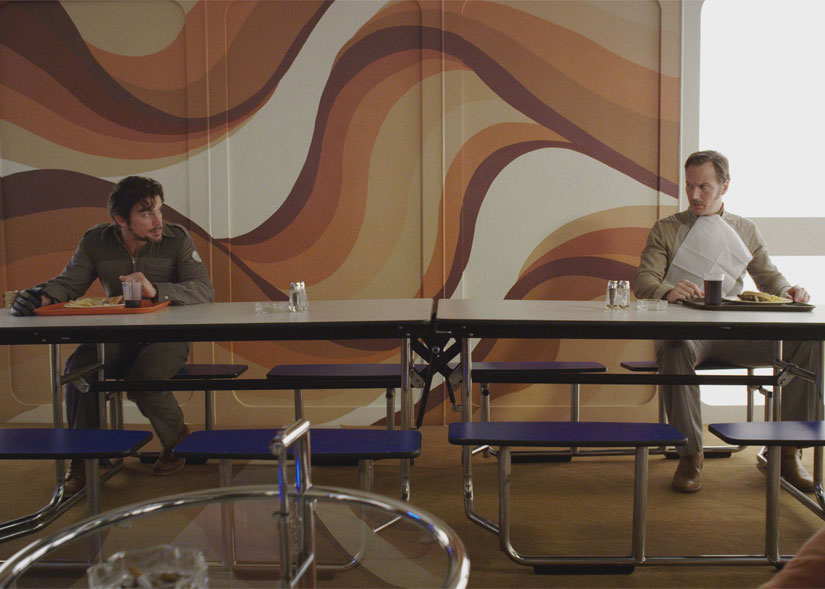[Ruby Hornet will be covering SXSW from March 7th to March 16th. Follow along as we bring you exclusive film reviews, photos, daily features, and interviews with filmmakers, actors, and musicians!]
Space Station 76
Director: Jack Plotnick
Rating: N/A
Release Date: March 9, 2014 (SXSW)
In Space Station 76‘s alternate universe, space travel was already established and a common thing by the 1970s. Of course, despite advancements in technology, the same problems that plague us still exist: frosty interactions with others, identity crises, and just general human drama. Space Station 76 uses the framework of an alternate ’70s space station to craft a story that is universal (pun intended), albeit with its own quirks. However, does it benefit from its setting, or is that nothing more than a gimmick that ultimately doesn’t pan out to much? Read on and find out.
When assistant captain Jessica (Liv Tyler) joins the crew of Space Station 76, all of the simmering emotions the pre-existing crew felt comes to a head. Captain Glenn (Patrick Wilson) struggles with both his secret homosexual affair with an ex-crew member and sharing duties with Jessica, Misty (Marisa Coughlan) is in a loveless marriage with Ted (Matt Bomer) while ignoring their young daughter, Sunshine (Kylie Rogers). Donna (Kali Rocha) dreams of joining a more upscale space station with her newborn and husband, Steve (Jerry O’Connell), who is conveniently enough having an affair with Misty. Space age drama? Check.
Space Station 76 uses the space station setting to put all of these fractured people into a closed setting to drive the conflict, but it doesn’t actually employ much from the space setting. In a way, I love that it doesn’t lean heavily on this admittedly one-off joke, but at the same time, I would have loved to see more of the space station elements to play into the plot. A few jokes do play off of some of the space station tech, but more would have definitely helped. The time setting, however, is apparent from not only some of the aforementioned tech (such as a R.O.B.-esque robot psychiatrist) to the crew’s lingo and clothes. It’s a bit cheesy, but writer/director Jack Plotnick plays up the cheese effectively.
The issue with Space Station 76 is that it isn’t very compelling. The film plays as a space opera, which in and of itself allows the film to be over-the-top and extravagant, yet Space Station 76 doesn’t take advantage of it. It’s as if Plotnick attempted to keep the film light and grounded within the confines of its setting instead of letting it float freely. Because of this, the film suffers from a lot of missed opportunities at the cost of dramatic and comedic progression. If played off as a straight satire on the ’70s space setting, Space Station 76 could have been better. Instead, the film feels like an elongated sketch that never found itself.

